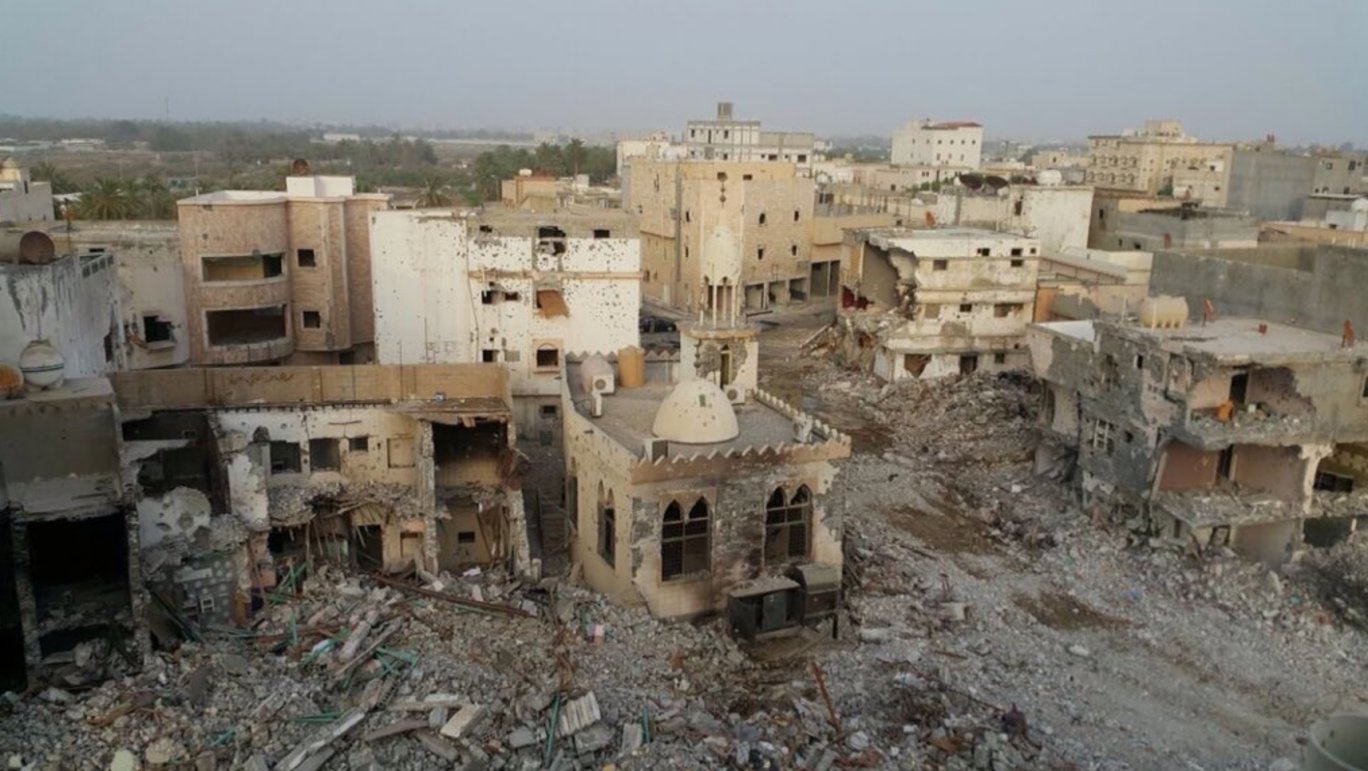On 16 August, the last residential building in al-Mosawara was demolished by the Saudi authorities, after a process of flattening and relocation that started in mid-May, and which led to conflict between residents and security forces.
The al-Mosawara neighborhood was a historic quarter in the Shia-majority town of al-Awamiyah, with a rich history, significant cultural heritage, and unique architecture as a walled village with mosques, farms and farmers’ markets, Shia places of worship, and businesses. In December 2016, the Saudi government announced its plan to develop and transform the area into a commercial and service zone, the first phase of which involved demolishing the existing buildings and removing the rubble. This plan was denounced twice by the United Nations (UN) experts on cultural rights, housing, and extreme poverty, because it “threaten[ed] the historical and cultural heritage of the town with irreparable harm, and may result in the forced eviction of numerous people from their businesses and residences.”
In the joint statement, Leilani Farha, the UN Special Rapporteur on the right to adequate housing, also warned that the Saudi government’s actions in al-Mosawara contravene international human rights law by amounting to forced evictions. The Rapporteur on extreme poverty and human rights, Philip Alston, raised additional concerns over the paralysis of schools, shops, and healthcare centers that resulted from the government’s military actions in al-Awamiyah.
The local population, too scared to leave their homes and facing a constant threat of violence by the Saudi authorities in the area, found themselves amid a conflict between the security forces and an undetermined number of unidentified armed men. The violence escalated and the authorities sealed off the town, started shooting arbitrarily and arresting anyone who dared leave their houses. The local population blames security forces for unnecessarily provoking a conflict which has resulted in the deaths of at least two dozen people. Saudi security forces claim their actions are part of a security operation aimed at alleged terrorist suspects.
But behind the violence towards the local population, redevelopment plans, and claims of terrorism, lies a deep-seated anti-Shia bias. The Government of Saudi Arabia systematically discriminates against its Shia minority in many areas: excluding members of the Shia community from certain public sector jobs and high political office, while using the criminal justice system as a tool to impose disproportionate punishments in unfair trials. For example, there is a particularly prominent case that includes 14 Shia men who await execution after Saudi Arabia’s Supreme Court upheld their death sentences for protest-related crimes. These 14 Shia dissidents were tried and convicted in the Specialized Criminal Court (SCC), which was originally set up to try terrorist suspects but is used by the Saudi government to suppress political opposition and human rights activism. In upholding their sentences, the Supreme Court rejected their torture allegations without investigating their claims. The Court denied the defendants’ requests for video footage from the prison which they say would show them being abused, and also declined to summon interrogators to describe how the confessions were obtained.
By trying peaceful Shia protesters in the SCC, the government is able to charge them under the kingdom’s Anti-Terror Law. This law contains a very broad definition of terrorism that allows for the criminalization of a wide spectrum of acts of peaceful expression, and it is used by the Saudi government to label as terrorism any acts they deem against the “national unity” or “the reputation or position of the State”. Ben Emmerson, the UN’s Special Rapporteur on human rights and counter-terrorism, manifested his concerns at the “use of Saudi Arabia’s 2014 counter-terrorism law and other national security provisions against human rights defenders, writers, bloggers, journalists and other peaceful critics”, after he received “numerous reports about prosecution, on the basis of this law, of human rights defenders, writers, bloggers and journalists in connection with their expression of non-violent views.”
Among the reports, Emmerson has received are those documenting Saudi Arabia’s repeated prosecution of Shia dissidents through the SCC. There is a pattern of the Saudi government using this court to prosecute Shia dissidents, usually accused of political and national security crimes. Some of these dissidents are protesters, while others are clerics, and normal citizens. In such cases, the court convicts the defendants of committing terror or treason crimes even if they are participating in non-violent protests or calling for government accountability or release of political prisoners. Human Rights Watch analyzed 10 trial judgments that the SCC issued against men and children members of the Shia minority accused of protest-related crimes in Eastern Province towns, and found out that in nearly all of these judgments, the accused had confessed but then retracted their confessions under claims that they had been obtained through torture, including physical harm and solitary confinement.
The destruction of al-Mosawara demonstrates Saudi Arabia’s broader anti-Shia bias, as does its prosecution of the paramilitary operation in al-Awamiyah on suspect counter terror grounds. The Saudi government should guarantee the people of al-Awamiyah’s cultural rights, including the right to the enjoyment of and access to cultural heritage, and the right to an adequate standard of living, including housing, access to education and healthcare. Moreover, Saudi Arabia should stop targeting Shia activists and prosecuting them through the Specialized Criminal Court for participating in non-violent protests and calling for government accountability or release of political prisoners.
Juan Carmelo Rodríguez Melián is an Advocacy Intern at ADHRB.





